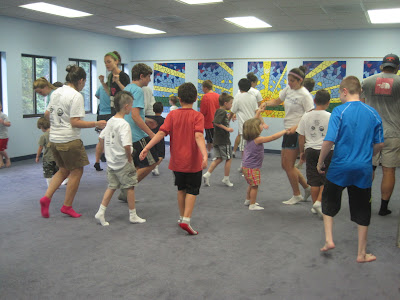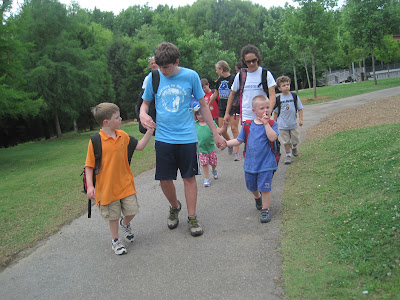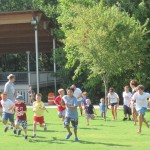July 31, 2012
You can't always be first
Teaching a child how to be a good loser, and how this unfortunate event (losing) is a part of everyday life, is a really hard task. But, one we set forth to do every day! We intentionally don't put a competitive spin on any of our games or activities, we always encourage a team mentality vs. competition. We do this because competition is something all of our kids struggle with...at school and home and any other groups they are a part of....and the majority of them usually end up on the losing side. They don't understand why they aren't the fastest, or most coordinated, or "best" at something; and when the "best" is usually the only one who receives the praise, that is hard to accept. They don't understand that they are just as important, even if they don't finish first..so, we focus on teaching them this concept, everyday!! While our games are not competitive, we do set them up so the kids are challenged in many different ways, where different strengths and weaknesses are necessary. This way, we are able to talk to all the kids, many times individually, about how it feels to not be the best, what this means about them and who they are, why this bothers them, what their individual strengths are, etc. No matter what we do, melt downs happen, feelings get hurt, insecurities show up, and we get the opportunity to sit down with the kids and talk to them and help them understand who they are and why THEY ARE IMPORTANT too!




















